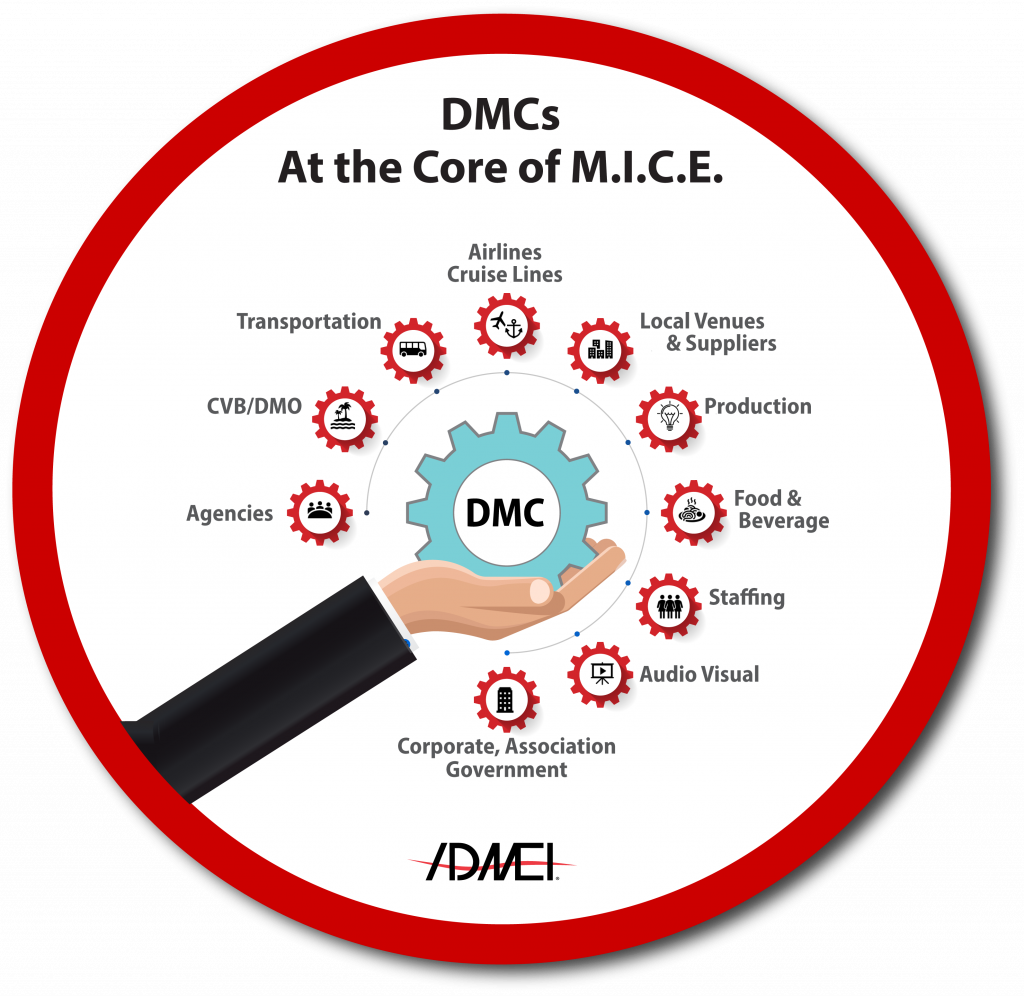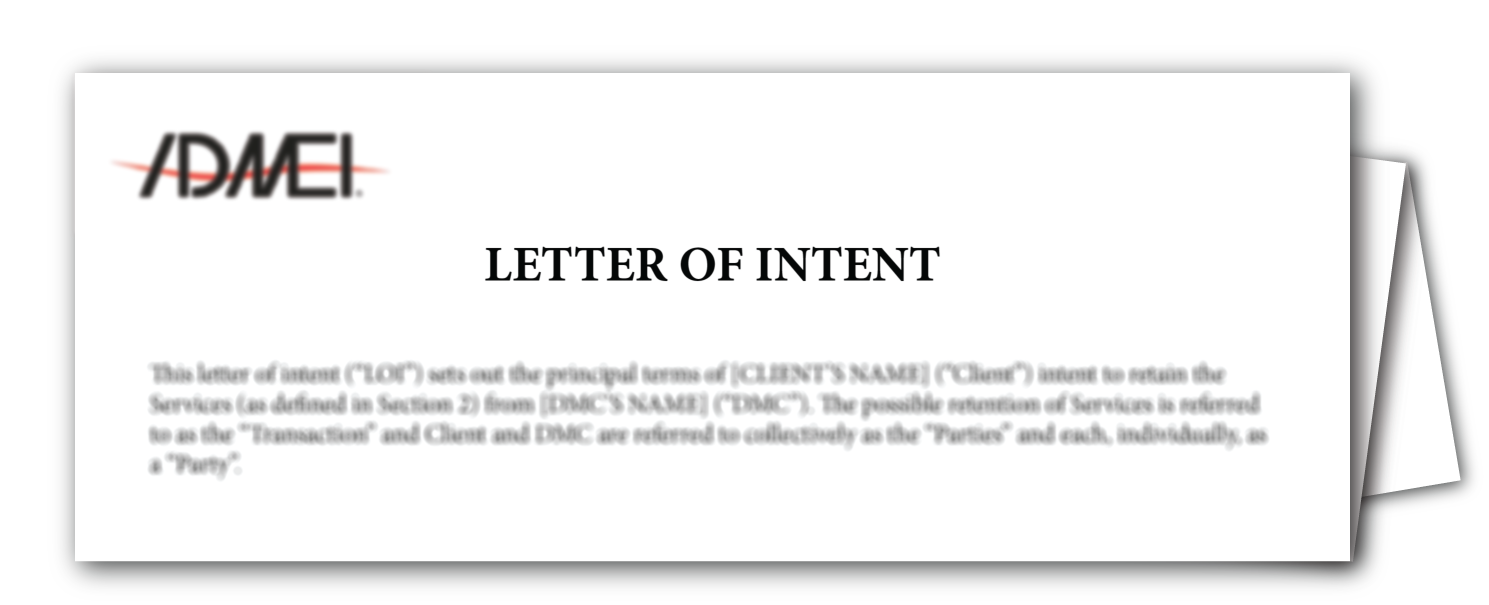While much of the world was quiet and “locked down,” members of ADMEI (the Association of Destination Management Executives International) have been busy learning new skills, updating their services, incorporating new health and safety measures, assessing local suppliers, and reviewing current business practices with an eye on improvement, evolution, and ongoing business viability.
Destination Management Companies (DMCs) are at the core of the MICE industry. They can and often do literally touch every aspect of a program from logistics to safety, from branding and theme creation to providing local experiences. The services they provide to their clients also provide business to their local supplier partners.
 Of recent note, Amy Calvert, CEO of Events Industry Council said, “As live events resume, we collectively recognize the essential role of DMCs, providing vital subject-matter expertise on a location or sector and helping to ensure events are inspiring, safe and valuable experiences. They’re critical connectors in the overall events industry ecosystem.” Calvert is among a host of industry executives who value the role of DMCs.
Of recent note, Amy Calvert, CEO of Events Industry Council said, “As live events resume, we collectively recognize the essential role of DMCs, providing vital subject-matter expertise on a location or sector and helping to ensure events are inspiring, safe and valuable experiences. They’re critical connectors in the overall events industry ecosystem.” Calvert is among a host of industry executives who value the role of DMCs.
Stephanie Harris, President of The Incentive Research Foundation remarked that “as events return post-pandemic, DMCs will play a more vital role than ever, providing critical local insight for planners. DMCs bring knowledge of the offsite venues that are adhering to protocols and help deliver a clear understanding of the details of local regulations. They will also know which venues and providers are still operating locally, given the significant changes during the last year”.
Calvert and Harris represent a cadre of high-level industry executives who have articulated the importance of Destination Management Companies to the hospitality industry. As DMCs progress and continue to be at the center of the industry, it is crucial that clients have a clear understanding of the value of DMCs and receive a high level of transparency regarding the labor, resources, and time invested in the delivery of DMC services.
DMC VALUE
Today, a Destination Management Company is officially defined as a professional services company, possessing extensive local knowledge, expertise, and resources, specializing in the design and implementation of events, activities, tours, transportation, and program logistics. This definition identifies the dual role DMCs play in both designing and implementing programs for their clients.
The DMC industry is often misunderstood in the value, depth, and creativity of its services and the associated costs involved with delivering a program. Much like a design/build construction firm, DMCs act as both the architect and general contractor for their programs. As the architect, they utilize their unique knowledge and expertise of the destination to design a program ‘blueprint’ which fulfills the client’s needs and goals, optimizes the available resources, and adheres to the limitations and requirements of the area. And, like a general contractor, DMCs possess the skills, resources, and vendor relationships to “build” the event. They develop the bid, hire and manage the sub-contractors, relate to all outside agencies for permits, insurance, etc., manage the finances of the job, provide constant supervision onsite, and over-all project management.[1] They are also versed in their local health and safety laws and requirements.
DMC work may seem intangible, yet it is critical to the overall program success and safety. DMCs embody an intrinsic creativity and the key relationships to execute “wow” moments, all while delivering confidence to their client in the management and execution of every element of the event.
Sherrif Karamat, President and CEO of PCMA, also cited the vital role of DMCs during his keynote address at the 2021 ADMEI Virtual Conference stating that “DMCs are incredibly important to the business events industry and PCMA is a big believer in DMCs.” He added, “DMCs create experiences which allow for greater connection, transfer of knowledge, and an overall greater experience for any event.”
Throughout 2020, ADMEI was at the forefront providing multiple avenues for member and non member DMCs to collaborate and share their insight on issues facing the DMC industry. In July, ADMEI launched its DMC Evolution Survey where in one section of the survey, DMCs from around the world shared their view on the issues impacting the DMC industry. In addition, ADMEI hosted facilitated Owner and General Manager Roundtables providing ADMEI members the opportunity for peer-to-peer brainstorming, problem-solving, and issue discussions. Common threads in both the survey and the roundtables for many were the need to change the proposal process, incorporate a Letter of Engagement to protect both the planner and DMC prior to executing a contract, and improve site inspection policies.
PROPOSAL PROCESS
In the past, many DMCs have been expected to develop a comprehensive proposal and complete costing; essentially a full blueprint, without any compensation, contract, or commitment – much like asking an architect to draw up the complete building plans for free. In the desire to please the client and “close the deal,” this approach was the norm for many, but in the end, this is a very poor DMC business model as it requires significant investment in human capital, time, and intellectual capital gleaned from experience – all without an agreement for compensation.
In an ADMEI focus group discussion, some participants estimated that 75% or more of their proposals were never contracted. And in the worst cases, proposal recipients used the DMC blueprint to ‘self-construct’ the experience using the DMC’s developed concepts. This investment without return increased company overhead, and ultimately program costs, for future programs. Many planners were indifferent as to the number of RFP requests they sent for an event as it had no financial impact on them. In similar fashion, RFPs were often presented without budget parameters, requiring the DMC to make assumptions on the type of program required, often having to re-do a proposal from top to bottom to meet the client’s newly disclosed financial criteria.
When operating like other service industry providers, DMCs are paid for complete detailed proposals while enjoying a partnership-based relationship with their clients. Planners enjoy greater transparency and DMCs are compensated for their consultancy instead of an unsustainable complimentary model.
A professionally prepared and formatted initial proposal showcases the DMC’s creative and logistical solutions to a client’s request for services. The details included should allow the planner to evaluate the capabilities, experience, professionalism, and reputation of the DMC. It provides an opportunity for the DMC to share how it vets and chooses local vendors, products, agencies, and talent. This proposal will include client references, case studies of similar programs, photos of past events, a list of professional membership organizations and accreditations, etc. to enable the client to make a confident decision in moving forward to the next step. This initial proposal will include estimated costs that include the time spent in discovery of the client’s needs and a high level sample program specific to the client’s request.

LETTER OF ENGAGEMENT (or LETTER OF INTENT)
- Availability of venues, restaurants, rentals, entertainers etc.
- Floor plans for functions
- Pricing based on group size (identification of minimum/maximum guests)
- Custom creative design of evening events including branding and theme development
- Agenda and timeline of proposed elements including tours, activities, evening events, etc.
The Letter also sets a time frame for progressing to a contract based on the detailed elements presented and a tailored review process with the client. If the client selects not to advance to a contract, their liability is limited to the agreed upon billing for time outlined in the Letter. If the client advances to contract, the Letter becomes null and void.
If a contract is executed, the hours spent between the Letter and contract execution may be credited against the scope of the program based on the size, or they can be recognized as a line item on the invoice as a payment for creative services rendered.

SITE INSPECTIONS
The Site Inspection is a physical visit by the client with the DMC to assess the destination and the proposed services/locations/venues to determine if they are conducive to the meeting’s overall objectives, while at the same time assessing the DMC’s local knowledge and capabilities.
This provides the perfect opportunity for the DMC to showcase product and destination knowledge, demonstrate experience, strong local vendor relationships, creativity, efficiency, and problem solving. At the same time, it is the ideal setting for the client to determine, first-hand, the DMC’s professionalism, due diligence and duty of care, and to establish a solid relationship that will enable both parties to work together efficiently towards the execution of the program.
The itinerary of a site inspection should cover all elements included in the proposal(s), short-listed by the client as the more viable and suitable to the particular event, including hotels, activities, transportation logistics, themed events, team building, entertainment and much more.
The DMC is responsible for orchestrating all these elements so that they can be effectively showcased within the time constraints of the site inspection visit. A considerable amount of work is involved in creating the site inspection itinerary, briefing involved vendors, planning routes, timings, rehearsals where required, menu tastings, and all necessary aspects.
In terms of cost, it is important to say that the first site inspection and subsequent site visits are customarily treated differently. For example, the first site inspection may be considered to be a part of the sales process and may occur before an agreement is executed. Additional site visits tend to be more operationally focused and are managed, treated, and charged according to the executed service agreement’s guidelines.
An upfront discussion with the client in advance of the site visit to set parameters about its costs and how much the DMC is willing to absorb is essential. Reasonable site inspection costs may be considered the “cost of doing business” to some clients, but since the number of site inspections a DMC performs in a year can easily exceed the number of programs a DMC may operate, consistently absorbing site inspection expenses as a “cost of doing business” is unsustainable for DMCs.[2]
For the first site inspection, the general approach shared by the vast majority of DMCs and identifiable as a best practice, is based on the following principles:
- Keep client site inspection costs to a minimum, and where possible, offer a deduction from the final invoice upon program / event execution
- Negotiate with local vendors for complimentary or discounted services
- If possible and ethically sound, offer some services on a complimentary basis as a gesture of hospitality and kindness.
Subsequent site visits may not merit discounted services from either the vendors or the DMC.
CONCLUSION
As Aoife Delaney, President of SITE states, “DMCs of course continue to know their destinations inside and out, but over the last year we have seen them really elevate their expertise around health and safety, with in-depth knowledge of Covid regulations, becoming CPCA's (Certified Pandemic Compliance Advisors) and becoming best in class with brand-new service offerings in terms of virtual and hybrid events. Client confidence in their program is critical and working with a Destination Management Company gives you the ability to have that confidence. Our industry continues to evolve, and the DMC is, now more than ever, the trusted advisor to help you find your way around that ever-changing landscape of the meetings, events and incentives of the future.''
The evolution of the DMC industry requires that it embark upon a renewed relationship with clients that is built upon transparency, trust, and understanding.
- Transparency, which outlines labor and resources invested;
- Trust, that is forged by a DMC’s ability to operate and deliver an essential service that satisfies clients’ needs;
- And, a mutual Understanding of the systems and processes used by the DMC to deliver a professional, safe, and flawless program.
For DMCs to not only survive but thrive, utilizing the service industry model ensures both excellence and sustainability in the services they provide. A unified approach will prove to be a mutually beneficial relationship between Destination Management Companies and clients as the MICE industry continues to evolve and adapt to new circumstances.
[1] Best Practices in Destination Management (Association of Destination Management Executives International), p.3.
[2] Best Practices in Destination Management (Association of Destination Management Executives International), p.37